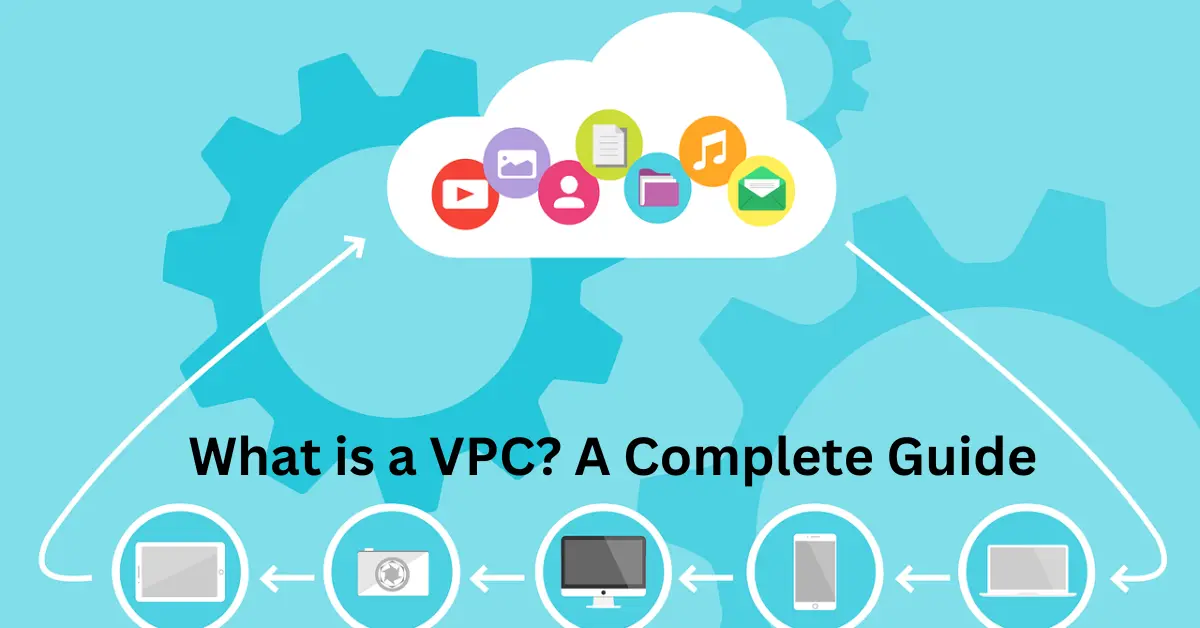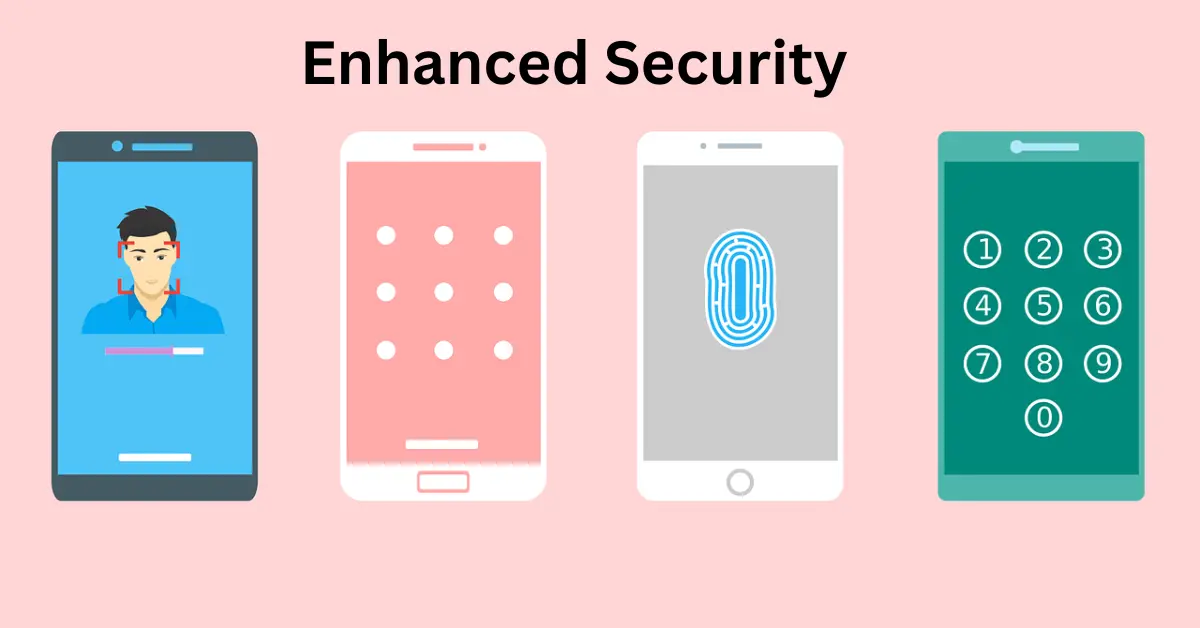What is a VPC? A Complete Guide to Virtual Private Clouds
Published: 12 Dec 2024
In the fast-evolving world of cloud computing, the Virtual Private Cloud (VPC) concept has become a cornerstone for businesses aiming to combine flexibility, security, and cost-efficiency.
But what exactly is a VPC, and why does it matter? This article will break it down in simple terms, explore its benefits, and showcase how it’s transforming industries worldwide. What is a VPC? A Complete Guide

What is a Virtual Private Cloud (VPC)?
A Virtual Private Cloud (VPC) is a secure, isolated private section of a public cloud. It allows businesses to launch and manage resources like virtual machines, databases, and applications in a virtualized environment that feels like their private network. Think of it as having your private room in a massive shared building—you have complete control over your space, but you’re still leveraging the amenities of the larger infrastructure. what is cloud computing
How Does a VPC Work?
To understand how a VPC operates, let’s break it down into three key components:
Network Segmentation
A VPC is divided into smaller sections called subnets. These subnets can be designated as public (accessible from the internet) or private (isolated from the internet). For instance:
A public subnet might host a web server that users can access.
A private subnet could house a database that’s only accessible internally.
Customizable Route
Customizable routing is one of the core features of a VPC, allowing precise control over how data flows within and outside the network. With customizable routing, businesses can:
Define Routing Tables:
Create and manage routing tables that determine how traffic is directed within the VPC and to external destinations. For example, a routing table can send traffic destined for a specific IP range to a private subnet or a connected on-premises data center. Cloud Computing Explained
Enable Internet Gateway Connections:
For resources that need internet access, such as public-facing web servers, you can attach an internet gateway to your VPC and define the routes to send traffic out to the internet while keeping other resources isolated.
Set Up Peering Connections:
Establish VPC peering to enable secure communication between two VPCs, either within the same organization or across different accounts.
Route Through Virtual Private Gateways:
If your VPC is part of a hybrid architecture, you can route traffic through a virtual private gateway to securely connect your on-premises network and cloud resources via a VPN.
Configure Blackhole Routes:
Add routes that intentionally drop traffic to prevent unauthorized access or to block traffic to certain destinations.
This level of customization ensures that data is handled securely and efficiently, enabling businesses to tailor the network behavior to their specific needs.
Security Controls
VPCs come equipped with a suite of robust security controls designed to protect resources and ensure secure data flow. These include:
Security Groups:
Security groups act as virtual firewalls for resources like virtual machines and databases. They allow businesses to define inbound and outbound rules for traffic. For instance, a security group can permit only HTTP and HTTPS traffic to a web server while blocking all other types of access.
Network Access Control Lists (NACLs):
NACLs provide an additional layer of security by controlling traffic at the subnet level. They work as stateless firewalls, where each rule needs to be explicitly defined for both inbound and outbound traffic. For example, you can block traffic from specific IP addresses or regions using NACLs.
Private Subnets:
A private subnet ensures that critical resources like databases remain inaccessible from the public internet. Resources in private subnets can communicate internally within the VPC but are shielded from external threats. cloud computing
Data Encryption:
Encryption mechanisms protect data both in transit and at rest. Data moving between resources or outside the VPC can be encrypted using protocols like SSL/TLS. Similarly, cloud providers often offer server-side encryption for stored data, ensuring compliance with industry standards.
Enhanced Security

VPCs provide a level of isolation that ensures your data and applications are protected from unauthorized access. By placing sensitive resources in private subnets and applying stringent security rules, businesses can mitigate risks.
Cost Efficiency
While maintaining the security and flexibility of traditional on-premises networks, VPCs eliminate the need for costly physical infrastructure. You pay only for the resources you use, making it a highly cost-effective solution.
Flexibility and Customization
Every VPC is customizable. You can design your virtual network to fit the unique needs of your application, whether it’s hosting a simple website or running complex analytics workloads.
Seamless Integration
VPCs integrate easily with other cloud services like storage, databases, and machine learning tools, allowing businesses to build powerful, end-to-end solutions.
Use Cases of a VPC
Hosting Web Applications
Imagine running a website where the front-end servers are in a public subnet, but the backend database is in a private subnet. This setup ensures the database remains secure while still allowing the website to be accessible to users.
Hybrid Cloud Architectures
Many businesses operate in a hybrid cloud setup, where their on-premises data centers are connected to a VPC via VPN or Direct Connect. This enables seamless communication between the two environments.
Data Processing and Analytics
Companies handling large volumes of data can use VPCs to create secure environments for processing and analyzing data, ensuring compliance with privacy regulations.
Disaster Recovery
Disaster recovery is a critical use case for VPCs, ensuring business continuity in the event of unforeseen incidents. Here’s how VPCs enable effective disaster recovery:
Isolated Backup Environments: A VPC can host backups and replicas of critical resources in an isolated environment, minimizing risks of data corruption or loss.
Rapid Failover: With resources pre-configured in a VPC, businesses can rapidly switch to the disaster recovery environment, reducing downtime.
Cross-Region Replication: VPCs support cross-region setups, ensuring that data and applications are replicated in geographically diverse locations to withstand regional outages.
Automated Recovery Solutions: Cloud providers offer tools like automated snapshots, backups, and recovery orchestration within VPCs to streamline disaster recovery processes.
Scalability During Recovery: In the event of a disaster, VPCs can scale resources quickly to meet demand, ensuring that critical applications remain accessible to users.
These capabilities make VPCs an essential component of robust disaster recovery strategies, helping businesses minimize losses and maintain operational resilience.
VPC vs. VPN: What’s the Difference?
A common point of confusion is the difference between a Virtual Private Cloud (VPC) and a Virtual Private Network (VPN):
VPC: A private, isolated network within a public cloud, designed for hosting and managing resources securely.
VPN: A secure connection that extends a private network across a public network, often used to connect remote users or on-premises networks to a VPC.
Both are essential but serve different purposes in cloud and network architecture.
How Popular Cloud Providers Offer VPCs
Here’s how major cloud providers implement VPCs:
Amazon Web Services (AWS)
Service: Amazon VPC
Features: Highly customizable, supports public and private subnets, integrates with other AWS services like EC2 and S3.
How Well Do You Know Virtual Private Clouds (VPC)? Take the Quiz!
Test your knowledge of Virtual Private Clouds (VPC) with this fun and informative quiz. See if you’re ready to optimize your cloud network or need to brush up on your VPC skills.
- What is a Virtual Private Cloud (VPC)?
a) A public cloud used for private businesses
b) A private, isolated section of a public cloud
c) A type of physical network for storing data
d) A cloud service that only provides storage
- What does a VPC allow you to do?
a) Connect to external networks only
b) Launch and manage resources like virtual machines and databases
c) Provide unlimited internet access
d) Offer only on-demand compute resources
- Which of the following is true about subnets in a VPC?
a) Subnets can only be public or private
b) Each subnet must be accessible from the internet
c) Subnets are always isolated and cannot communicate with each other
d) Subnets can only be used for storing data
- How does customizable routing in a VPC work?
a) It allows for automatic data flow management with no configuration required
b) It provides full control over how traffic flows within and outside the network
c) It is only useful for applications with static IP addresses
d) It restricts access to external resources only
- What role do security groups play in a VPC?
a) They store encrypted data
b) They act as virtual firewalls to control inbound and outbound traffic
c) They are responsible for hosting the web server
d) They only monitor traffic in public subnets
- Which of the following is a benefit of using a VPC?
a) Lower internet bandwidth costs
b) Enhanced isolation and security for resources
c) Limited scalability
d) Inability to integrate with on-premises networks
- What is the primary difference between a VPC and a VPN?
a) VPCs provide private networks in the public cloud, while VPNs connect to secure external networks
b) VPCs provide internet access, while VPNs only allow remote users to connect
c) VPCs are used for disaster recovery, while VPNs manage network bandwidth
d) VPCs are not flexible, while VPNs are highly customizable
- What feature of VPC helps ensure high availability and fault tolerance?
a) Automatic scaling
b) Multiple availability zones
c) Data encryption
d) Single-region deployment
- Which of the following best describes a VPC’s disaster recovery capability?
a) VPCs are not designed for disaster recovery
b) VPCs enable backup replication and automated failover across regions
c) VPCs offer no support for backup storage
d) VPCs only support disaster recovery for web servers
- What does the term “hybrid architecture” mean in the context of VPCs?
a) A network structure that connects only public cloud resources
b) The ability to integrate on-premises systems with cloud-based resources
c) A public cloud service that provides virtual machines
d) A purely local network setup without any cloud integration
Check Your Results!
Mostly A’s: You’re just starting to explore VPCs! It’s time to dive deeper and get familiar with VPC
What is a VPC? A Complete Guide
Google Cloud Platform (GCP)
Service: Google Cloud VPC
Features: Global networking, hybrid connectivity options, scalable and flexible.
Microsoft Azure
Service: Azure Virtual Network (VNet)
Features: Advanced hybrid connectivity, integrates seamlessly with Azure’s ecosystem.
What is a VPC? A Complete Guide
Alibaba Cloud
Service: Alibaba Cloud VPC
Features: Highly flexible, supports encrypted communication, optimized for Asia-Pacific markets.
Challenges and Limitations of VPCs
While VPCs offer numerous benefits, they’re not without challenges:
Complex Configuration: Setting up and managing a VPC requires technical expertise.
Limited Accessibility: High-frequency waves in certain regions can reduce performance.
Cost Management: Over-provisioning resources can lead to unnecessary expenses.
To overcome these challenges, businesses should plan their VPC architecture carefully and leverage tools provided by cloud providers to monitor and optimize usage.
Future of VPCs
As cloud adoption grows, VPCs are evolving to meet new demands. Advanced features like network slicing and AI-driven automation are being introduced, making VPCs even more versatile. With the rise of edge computing, VPCs will play a crucial role in creating secure, scalable networks that extend beyond traditional data centers.
Conclusion:
A Virtual Private Cloud (VPC) isn’t just a technical concept; it’s a transformative tool that empowers businesses to harness the power of cloud computing without compromising security or control. From hosting web applications to enabling hybrid architectures and disaster recovery, VPCs provide the perfect balance of scalability, security, and cost-effectiveness.
What is a VPC? A Complete Guide
Proudly powered by WordPress






